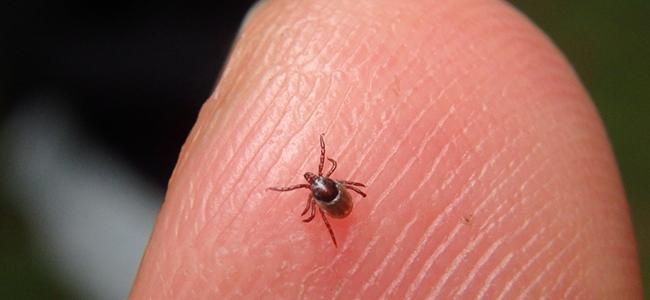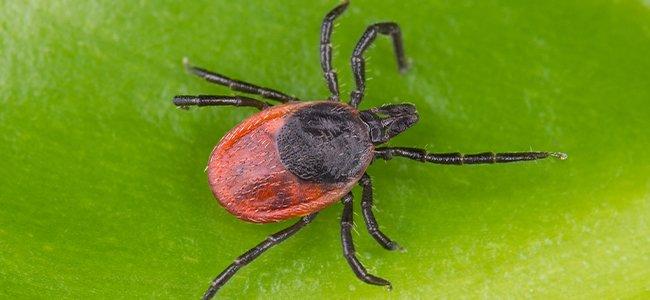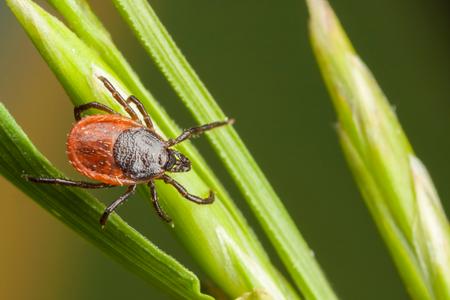
The Best Tick Control For Maryland Properties
10/01/2021
In Maryland, we have some of the most enjoyable weather (for most of the year) for playing out in the yard and enjoying time with our pets. Unfortu...
READ MORE >
07/12/2011
You usually don’t see them until it’s too late. But they’re waiting for you outside. In forested areas with thick brush or grassy places that are not mowed regularly. They could even be hiding in your lawn. They hungrily wait for you to pass by so they can hitch a ride home with you.
Ticks are a parasitic pest to humans, dogs, deer, mice and other wildlife and they are expected to appear in abundant numbers this year. These vicious critters are a major downside for summer lovers everywhere. They’re unsightly, they crawl all over you and they often drive people to holing up in their homes during the summer months rather than venturing outside and getting the most out of the season. (Did you know that ticks are arachnids? They have four pairs of legs and two body segments, which means they’re related to spiders!)
These insidious critters have a special place in the elite class of pests you want to avoid most (Along with bed bugs and mosquitoes!) because ticks are not only a nuisance, they are also considered a public health threat. The Center for Disease Control recognizes ticks as vectors for pathogens that can cause Lyme disease, Rocky Mountain Spotted Fever and other significant diseases.
In American Pest’s service area, which includes Maryland, DC and Northern Virginia, the two tick species you should be on the lookout for are the Brown Dog Tick and the Deer Tick (Black Legged Tick) Brown Dog ticks are a reddish-brown until they are engorged with blood, when they turn a gray-blue or olive color. Adult male Deer Ticks are reddish-brown, but adult females are an orange-brown color with a red marking on their abdomens. Deer ticks are also the most commonly associated with Lyme disease.
Observe these tips this summer to help prevent bringing ticks home with you during your favorite pastimes.
1. Avoid Tick Harborages
Unkempt lawns and wooded areas with thick brush are the places where ticks wait for a passing host to hitch a ride on, especially if they are frequented by deer and other wildlife. On hiking trips, opt to stay on the center of the beaten paths.
2. Eliminate Tick Harborages Near Your Home
Maintain your lawn regularly, cutting it before the grass grows more than three inches. This will reduce the humidity at the ground level and make it more difficult for ticks to wait at the end of a piece of grass for a passing host.
3. Repel Wildlife Tick Hosts
Remove brush, weeds, leaf litter and other debris from your yard that would attract deer, rodents and other wildlife carrying ticks. You can also consider fencing to keep these tick-hosting critters out. Finally, eliminate dense perennial ground covers that are close to your house. (Ivy, pachysandra, etc.) P.S. This is also a great prevention tip for several ANT species!
4. Check Yourself
If you are concerned you may have encountered a tick harborage, check your entire body immediately. Change into new clothes and carefully review your arms, legs, chest, back and hairline as you do so.
5. Don’t Forget Your Pets!
Regularly apply a veterinarian-approved flea and tick treatment at least from April to November, the times of year when they are most likely to strike. When your pets come inside from a play-filled day, groom them with a tick & flea comb to thwart the efforts of ticks hitchhiking on your pet’s hide.
If you find a tick on yourself or your pets, it needs to be removed immediately.
1. Use a pair of tweezers to lift the entire tick off the skin, otherwise the tick’s head may separate from its abdomen and remain entrenched in your skin, further increasing your chances of the wound becoming infected. (Click HERE to see how to properly remove a tick!)
2. Pay attention to how you feel and the area of skin you found the tick on for the next few days. If you notice any markings develop or change of color, OR if you do not feel well, consult your doctor immediately.
We hope these tips help you and your family take the necessary steps to enjoy a tick-free summer!
For more information about how we can help solve your tick problems, contact American Pest today at 1-877-282-1886, or fill out our online contact form. You can also check us out on Facebook or Twitter!

10/01/2021
In Maryland, we have some of the most enjoyable weather (for most of the year) for playing out in the yard and enjoying time with our pets. Unfortu...
READ MORE >

09/03/2021
Healthcare facilities, such as hospitals, nursing homes, rehabilitation centers, and emergent care centers must maintain a strict level of sani...
READ MORE >

08/23/2021
Ticks are considered to be some of the most dangerous arachnids around. Not only are they famous for biting people, pets, and wildlife creatures, b...
READ MORE >

07/15/2021
Each year, tick populations are on the rise. This is due to a multitude of factors, including climate change and increased tick habitat. Frederick ...
READ MORE >

Protect your home and family from nuisance and potentially damaging pests with a Preferred Care home pest control plan. Starting at $49/month

Don't let the bed bugs bite a second longer. Contact American Pest for the most comprehensive bed bug control in the industry. Learn More

Our certified rodent control pros will put an end to your frustration by getting rid of rats and mice inside your home. Learn More

Say goodbye to wood-destroying termites in your home when you contact American Pest for expert termite control. Learn More

Trust American Pest to deliver professional backyard tick control services that are guaranteed to get results. Learn More

Don't spend the warm-weather season indoors, find out how American Pest's professional treatments get rid of mosquitoes. Learn More
Fill out the form and recieve feedback in less than 5 minutes. For immediate service please call.